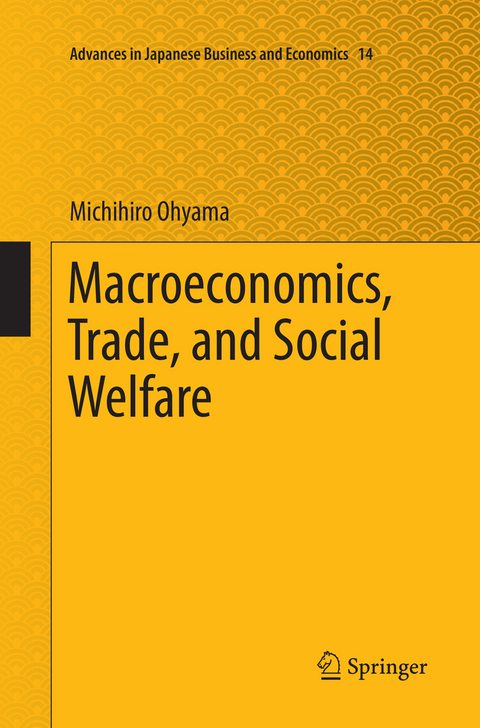
Macroeconomics, Trade, and Social Welfare
Springer Verlag, Japan
978-4-431-56697-7 (ISBN)
Michihiro Ohyama is a professor emeritus of Keio University, Tokyo, Japan. He is the former president of the Japanese Economic Association and the Japan Society of International Economics. His major publications include “On the Stability of Generalized Metzlerian Systems,” Review of Economic Studies, Vol. 39 (1972); “Trade and Welfare in General Equilibrium,” Keio Economic Studies, Vol. 9 (1972); and “Market, Trade and General Equilibrium,” Japanese Economic Review, Vol. 50 (1999). Professor Ohyama conducted research at the University of New South Wales, Tel Aviv University, and the University of Minnesota. His research has ranged from general equilibrium theory to welfare economics, macroeconomics, and international economics. References to his works are found in Keio Economic Studies 42(1–2), 2005, a special issue in his honor.
Part I Welfare and Macroeconomics.- Chapter 1 Multiplier Theory and Public Goods: A Macroeconomics of the Mixed System.- Chapter 2 Unemployment and Inflation: Natural Wage Rate Hypothesis.- Chapter 3 A Macroeconomic Theory of Money, Income, and Distribution.- Part II Welfare and Trade.- Chapter 4 Trade and Welfare in General Equilibrium.- Chapter 5 Domestic Distortions and the Theory of Tariffs.- Chapter 6 Tariffs and the Transfer Problem.- Chapter 7 Innovations and International Trade.- Chapter 8 Factor Endowments and Pattern of Commodity and Factor Trade.- Chapter 9 Partial Free Trade Agreements and Economic Welfare: Reconsidering GATT Article 24.- Chapter 10 Market, Trade and Welfare in General Equilibrium.- Part Ⅲ Welfare and Efficiency.- Chapter 11 Welfare and Efficiency:Socio-economic Controversies in the Modern Times.- Chapter 12 A Theoretical Framework of Mixed Systems.
| Erscheinungsdatum | 18.08.2018 |
|---|---|
| Reihe/Serie | Advances in Japanese Business and Economics ; 14 |
| Zusatzinfo | 330 Illustrations, black and white; XIII, 232 p. 330 illus. |
| Verlagsort | Tokyo |
| Sprache | englisch |
| Maße | 155 x 235 mm |
| Themenwelt | Recht / Steuern ► Steuern / Steuerrecht |
| Sozialwissenschaften ► Politik / Verwaltung ► Staat / Verwaltung | |
| Wirtschaft ► Volkswirtschaftslehre ► Finanzwissenschaft | |
| Wirtschaft ► Volkswirtschaftslehre ► Makroökonomie | |
| Wirtschaft ► Volkswirtschaftslehre ► Wirtschaftspolitik | |
| Schlagworte | Fiscal Policy • Free Trade Agreements • Gains from trade • Multiplier theory • New Keynesian synthesis • public goods • Welfare and efficiency |
| ISBN-10 | 4-431-56697-X / 443156697X |
| ISBN-13 | 978-4-431-56697-7 / 9784431566977 |
| Zustand | Neuware |
| Informationen gemäß Produktsicherheitsverordnung (GPSR) | |
| Haben Sie eine Frage zum Produkt? |
aus dem Bereich


